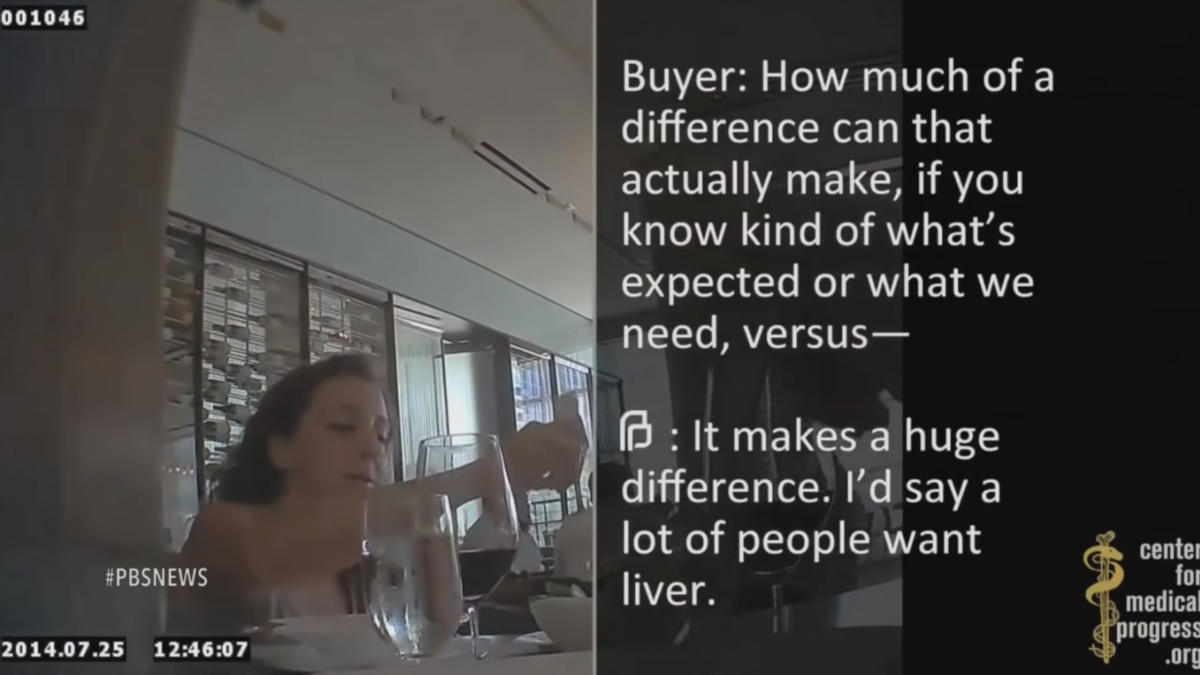
Lawyers representing pro-life activist and citizen journalist David Daleiden returned to the Ninth Circuit Court of Appeals on Tuesday, where oral arguments were heard for why he should regain control of 500 hours of undercover video footage he recorded at the National Abortion Federation (NAF) meetings in 2014 and 2015. The footage in question features Planned Parenthood employees and other abortion industry representatives discussing the sales of aborted baby body parts, and much of it has never been released to the public.
Representing Daleiden and the Center for Medical Progress (CMP), attorney Heather Hacker asked the court to reverse and vacate the injunction that was issued late one Friday night in 2015 by District Judge William Orrick at the request of NAF, the largest abortion trade group in North America. Orrick ruled that the safety of abortion workers (NAF’s members) outweighed Daleiden’s First Amendment rights.
I reported on Orrick and his ties to the pro-abortion movement in 2021 when he was deliberating making the injunction permanent:
Orrick was nominated to his position by former President Barack Obama and was a major donor to and bundler for Obama’s presidential campaign. Both Orrick and his wife are longtime donors to San Francisco’s Good Samaritan Family Resource Center (GSFRC), where Orrick was a board member and helped fund and open a Planned Parenthood clinic on its site. That clinic sold fetal tissue to StemExpress, a for-profit wholesaler exposed by CMP’s videos and reporting.
Daleiden is not just barred from publishing the footage but does not even currently possess the footage, which is at the center of an ongoing criminal case against him.
Hacker argued that the injunction not only violates Daleiden’s First Amendment rights, but at a minimum, is overbroad considering much of the footage was recorded in public settings. In a previous criminal case against Daleiden for the same recordings, charges were dismissed because the court determined there was no expectation of privacy in many of the recording locations such as hotel lobbies and restaurants.
Adam Sorenson, representing NAF, argued the injunction is actually “narrow,” in that it “does nothing more than simply hold defendants to their contractual promises not to disclose illegally obtained materials to third parties.”
The three-judge panel seemed most interested in how they should weigh the nondisclosure and confidentiality agreements Daleiden signed, and ultimately violated, in order to attend the conference where his undercover filming occurred. They pressed both Hacker and NAF’s lawyers on whether the “clear and compelling evidence” standard had been met, one way or the other, by the contracts Daleiden signed and breached.
Of the two contracts breached, Sorenson argued that the “clear and convincing standard” is met “by the exhibition contract alone,” he said, arguing that the contract “makes clear an attendee cannot disclose to any third party any information that they learn in the course of attending the conference.”
Hacker countered that the agreement Daleiden signed, “defines confidential information, not as all information that you receive at the conference, but instead, as ‘information that NAF may furnish.'” The content of these recordings, she said, is largely not information furnished by NAF, but “casual business conversations that were held between individuals attending the conference.”
As to the question of whether there is “clear and convincing” evidence that Daleiden signed away his First Amendment rights when signing the agreements, Hacker pointed to other exhibits showing that NAF acknowledged conference attendees would be using their phones to take pictures and videos.
“It’s not clear that this was some top secret conference that everyone knew they weren’t supposed to take pictures at or report,” she said. She also pointed out that the lower court never held that the confidentiality provisions of the contract were breached.
A decision in National Abortion Federation v. Center for Medical Progress is expected in the next few months.








